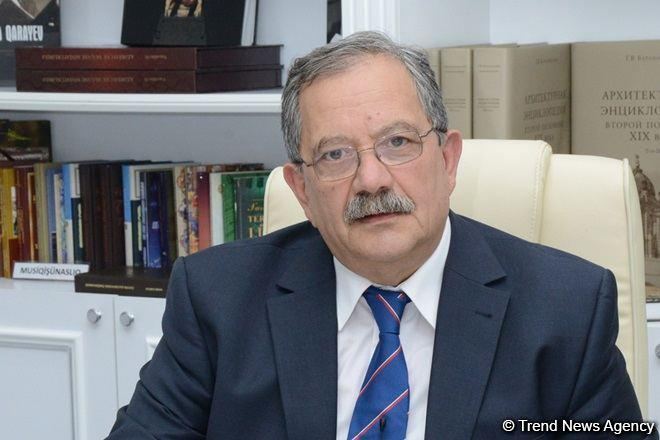BAKU, Azerbaijan, Nov.3
Trend:
Representatives of one of the most ancient Christian peoples of Azerbaijan, the Udins, like other peoples of the country, take part in the ‘Patriotic War’ to liberate the territories of Nagorno Karabakh occupied by Armenia, representatives of the Udi community living in the Azerbaijani village of Nij told Director of the Baku Network Elkhan Alasgarov, Trend reports.
Taking part in the war as equal citizens of Azerbaijan, the Udins also have religious motives, for which they consider this war to be a liberation one. This is the desire to preserve the truth about the Christian heritage of the historical ‘Caucasian Albania’, especially, in the churches that were Armenized by the occupiers from Armenia and the churchmen of Echmiadzin.
"We, Christians, are waging the patriotic war along with our fellow countrymen. Some people abroad incorrectly call it a Muslim-Christian war. Such an opinion is wrong. Representatives of different religions living peacefully in Azerbaijan currently are fighting for sake of their homeland to stop finally the Armenian occupation," the Udins said.
“I have two sons, both are now serving in the army, liberating our occupied territories from the Armenian occupation. The elder also participated in the April battles,” one of the Udi community members proudly said.
According to him, in the village of Nij more than 100 Udins have joined the Azerbaijani Armed Forces and are at the front.
This is a high figure. One of the highest indicators in the national composition is Udins. Karabakh is our native land. It has a special place in our hearts. There is also our richest Christian heritage. One of 5 meliks (feudal rulers) of Karabakh was Udin, which is a great pride for our people, he added.
The Udins of the village of Nij also talked about how the Armenians captured their ancestors and Armenized their culture and faith.
“Armenians appropriated not only the heritage but also some part of the population. The main part of the Udins dissolved and became Armenians under the domination of the Armenian Church. In fact, our community was handed over to the Armenians to be torn apart. The Udins of the village of Nij abandoned the Armenian Church and preserved their culture and faith here," noted the Udins.
Armenian Armed Forces launched a large-scale military attack on positions of the Azerbaijani army on the front line, using large-caliber weapons, mortars, and artillery on Sept. 27.
Azerbaijan responded with a counter-offensive along the entire front. As a result of retaliation, Azerbaijani troops liberated a number of territories previously occupied by Armenia, as well as take important, strategic heights under control.
The fighting continued into October 2020, in the early days of which Armenia has launched missile attacks on Azerbaijani cities of Ganja, Mingachevir, Khizi as well as Absheron district.
Despite the fact that so far the parties have reached an agreement on a humanitarian ceasefire three times, Armenia continues to violate this agreement.
The conflict between the two South Caucasus countries began in 1988 when Armenia made territorial claims against Azerbaijan. As a result of the ensuing war, the Armenian Armed Forces occupied 20 percent of Azerbaijan, including the Nagorno-Karabakh region and seven surrounding districts.
The 1994 ceasefire agreement was followed by peace negotiations. Armenia has not yet implemented four UN Security Council resolutions on the withdrawal of its armed forces from Nagorno Karabakh and the surrounding districts.







